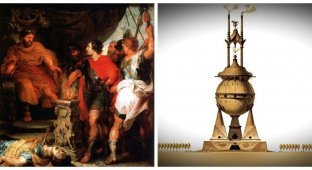How the Ungru estate, where Emperor Peter I was visiting, turned into an ode to unhappy love (8 photos)
The majestic building is a vivid example of the neo-baroque style, it was once a real gem of Estonia. 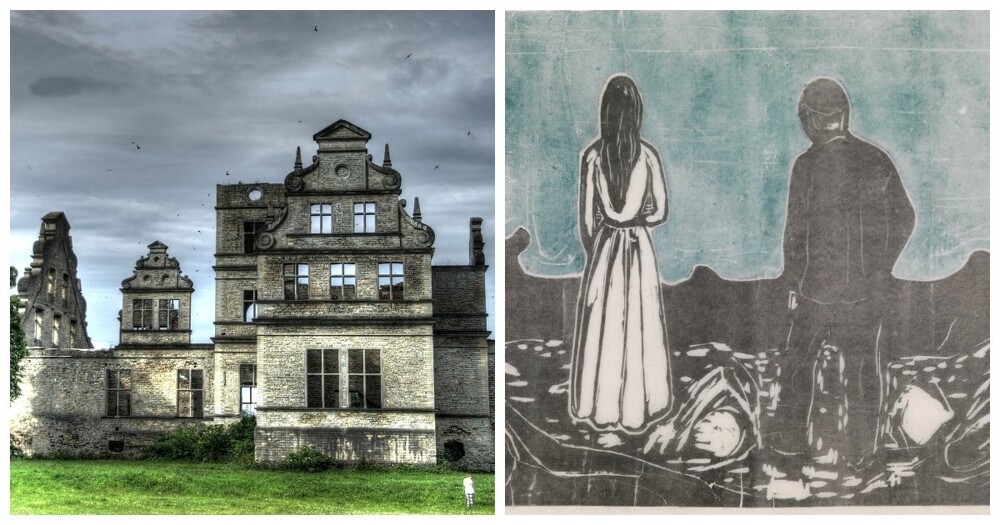
Unfortunately, the Ungru manor near the city of Haapsalu, which looks like a real castle, has lost its splendor and remains only shadow of itself. Most of the materials were used for airstrip equipment located nearby. A the skeleton remained like a ghost - the ghost of beautiful love, about which even came up with a touching story. 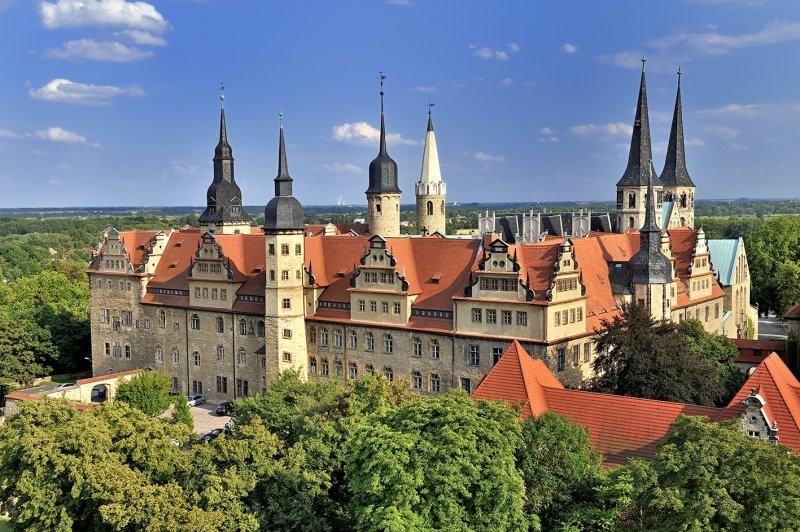
Merseburg Castle in the German city of Halle
Ungru is an almost exact copy of the Merseburg castle in the German city of Halle. It was erected on the site of an old manor at the end of the 19th century. century. That very estate in 1715 was unexpectedly visited by the emperor himself Peter I. History is silent about the reasons for the trip. But the place became famous thanks to an interesting moment. 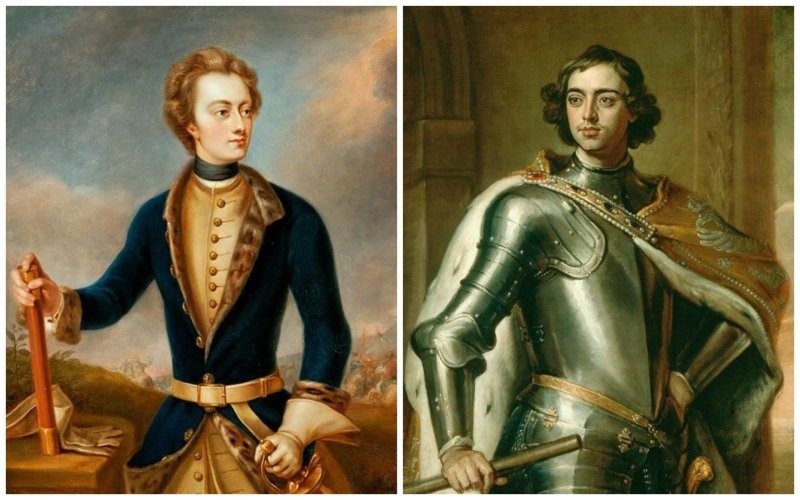
Carl and Peter
Allegedly, the king was sitting at the table and drew attention to the empty frame above the door. Soon its contents were discovered - a portrait of Charles XII, stuck behind the oven. Probably the owners of the estate quickly got rid of it, upon hearing of the king's arrival. Peter grabbed the find and exclaimed: “Aha, brother Karl! Now you have to hide behind the stove! But still one battle, and I would have to go there myself! And returned portrait on the wall. 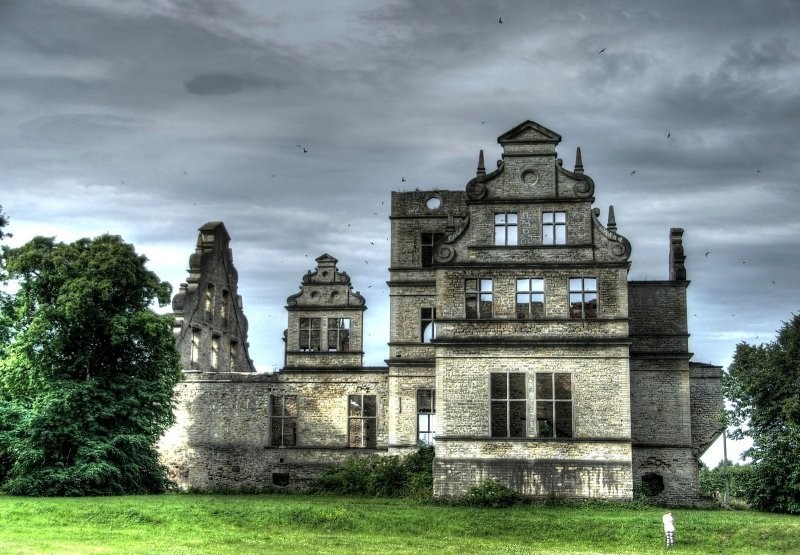
Ungru
The legend says that the heir of the owner of the estate, which was owned by representatives of the von Unger-Stenberg family for several centuries, traveled to Germany on business. In the same Merseburg castle. And desperately fell in love with the owner's daughter. 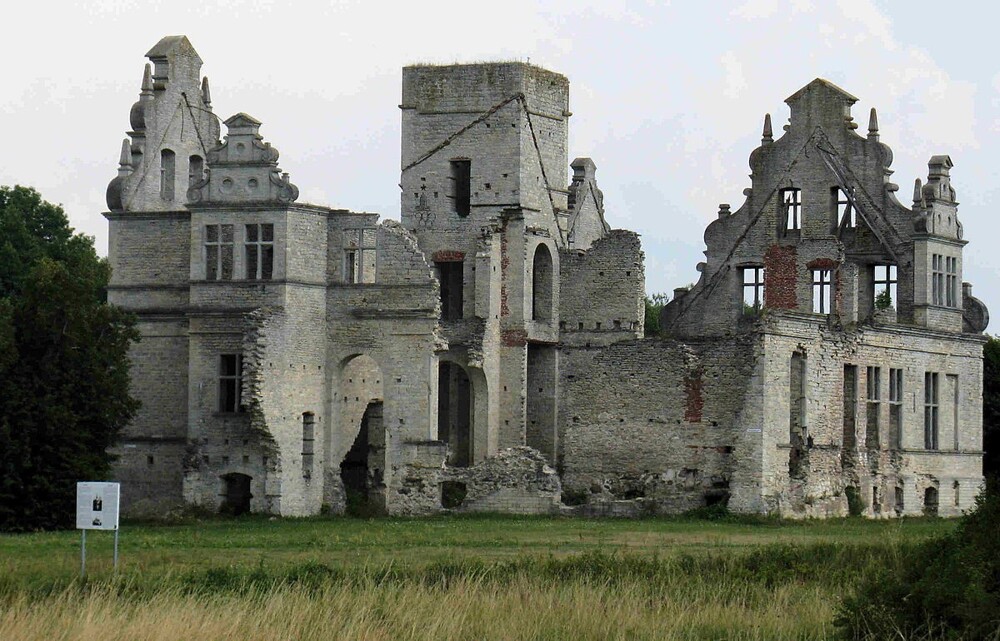
The girl was also sympathetic to the fan. And a marriage proposal and received hearts. But with a caveat: I’m very used to my native walls, so I don't want to leave them. 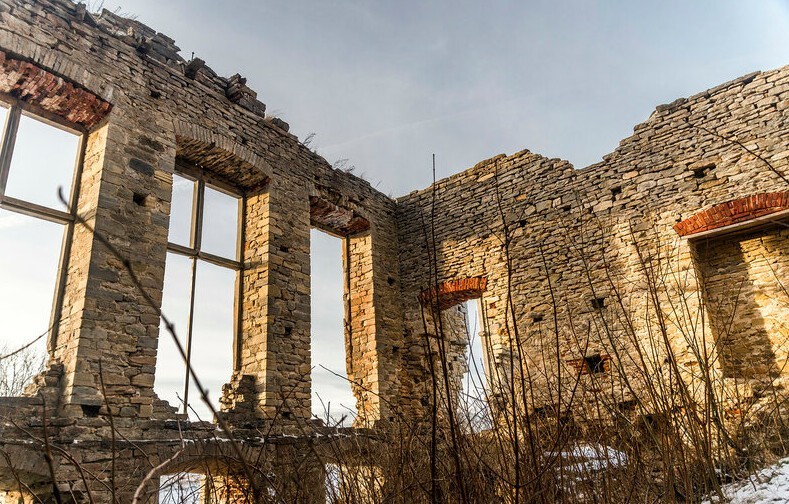
Ewald von Unger-Stenberg was not a magician and could not move the ancestral castle to Estonia. But he swore to his bride that he would build exactly the same for her. And built, there were mere trifles. When the messenger delivered the sad news: the beloved died. 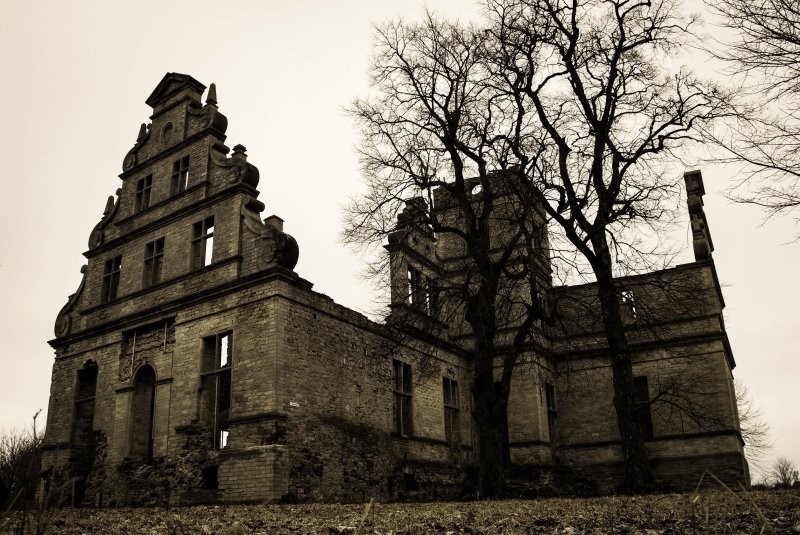
Mental torment knocked down the nobleman. He died in 1908. A the magnificent castle, created for love and family, was orphaned, never becoming a real home. 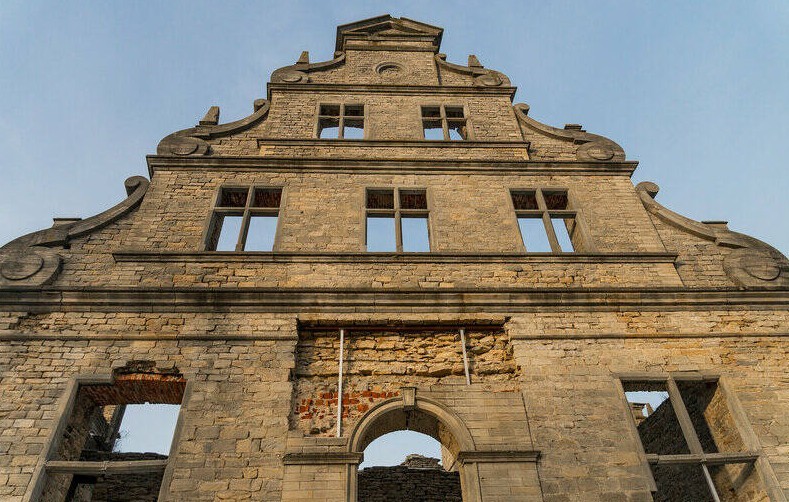
The owner had no heirs. And Ungru gradually came to desolation. The runway has long been overgrown, and the ruins stand in their gloomy splendor as a monument to unfulfilled dreams of happiness.












